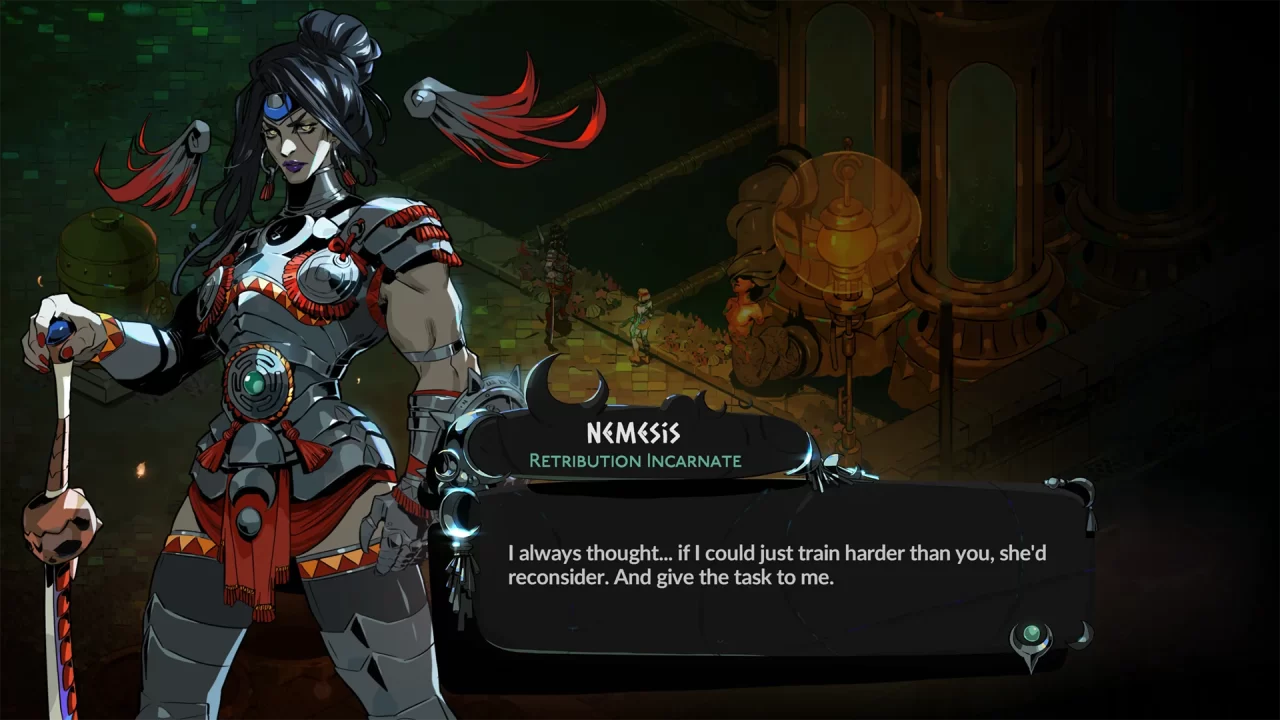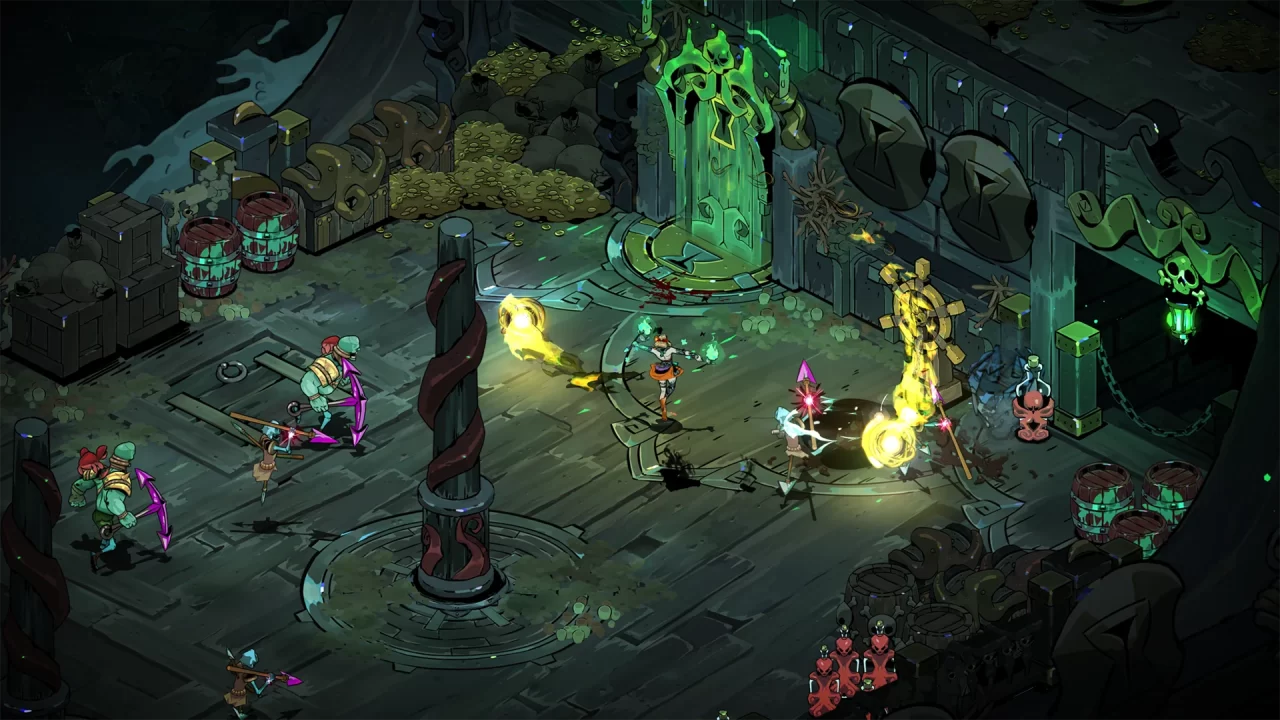Making a sequel to a hit game is never easy, and following something as beloved as Hades is even tougher. The inevitable question is: can it live up to the original? Right from the start, Hades II has to show it belongs alongside one of the most influential roguelikes ever created. As someone who never played the early access version, reviewing Hades II for the first time in its full release was an exciting opportunity.
First, I have to admit I’ve never been a huge fan of roguelikes. Whenever I engage with them, it’s usually as a side activity in a larger game, such as soloing the deep dungeons in Final Fantasy XIV or making the trek before the Nightlord in Elden Ring Nightreign. Even then, I finished those runs only for the achievements in the former and as a prerequisite to the actual boss in the latter. I never felt real enjoyment from the process, even when the accomplishment itself was impressive. Sure, I can concede there’s a certain satisfaction in a run where everything lines up, but the randomness at the heart of the genre has never appealed to me.
That’s why the first Hades surprised me. It took the structure I normally avoid and turned it into something I couldn’t put down. Despite its relatively short main arc, there was just enough progression and variety between runs to keep you playing for hours on end. Hades II builds on that same design philosophy and proves the formula still works.
This time, the journey splits in two; you can descend through the dangers of the Underworld or climb toward the heights of Mount Olympus, each path offering distinct encounters, bosses, and rewards. Both follow the simple, addictive loop that the original Hades perfected so well. My only minor criticism is that the first route feels far too easy in comparison, and it takes quite a few runs to unlock the second route. Specifically, the Underworld took me only a couple of attempts to complete, meaning I still had to grind through several more runs before I had the materials to enter Mount Olympus. By the time I reached it, I was already growing tired of the Underworld.
The gameplay in Hades II is just as strong as its predecessor, but in a different way. Here, the game leans less on fast-paced action and more on the depth of its mechanics, both in your moves and the bosses you face. For example, you now have Omega moves, which are powerful attacks that must be charged before use. To wield them effectively, you need to spot openings and “punish” the boss at the right moment.
Bosses themselves also lean more on mechanics than pure reaction time, reminding me of raiding in Final Fantasy XIV. If you’re familiar with MMORPG raid mechanics, you might be able to take down many bosses on your first attempt. Their patterns are fairly predictable, but the fights remain engaging nonetheless. What impressed me most, however, is the sheer amount of dialogue from them. Even after defeating a boss several times, they always have something new to say, and they’ll comment differently if you beat them without taking a single hit.
Our review of the first Hades considered the story fairly average, and I feel the same about Hades II. It takes place some time after the original and centers on a new protagonist, Melinoë, a witch and princess of the Underworld who seeks to confront the Titan Chronos. This sequel shifts focus onto fresh character relationships, while keeping the world connected to what came before through the return of familiar Olympian gods (like Zeus, Artemis, and Poseidon) and narrative threads that reference Zagreus and his legacy. The premise keeps you moving forward, even if it isn’t especially unique.
That said, the sheer attention to detail elevates the story into a far more enjoyable experience. Each character feels active in their own way rather than remaining tucked away as background NPCs. For example, your rival Nemesis can appear at any point during a run, influencing it in a variety of ways. When you return to the Crossroads (the starting location) afterward, she will comment on your progress. In fact, even minor support characters that appear randomly during runs can show up later in the Crossroads.
Hades II truly shines once you finally unlock the Olympus path, where gameplay takes on a different rhythm. Rather than breezing through runs by picking random boons (power-ups), you’re encouraged to select ones that complement your chosen build. Early on, you’re presented with a selection of rooms offering different boons, letting you shape your run as you see fit. Normally, I would critique other roguelikes for overreliance on randomness; I was occasionally disappointed when my favorite builds weren’t available. Still, the core mechanics here are remarkably balanced, and I enjoyed experimenting with a completely different build each run.
As I understand it, the primary difference in the full release is the addition of a true ending. When Supergiant Games first released the early access version in May of 2024, they hadn’t yet decided how to conclude the game, opting to wait until the full release to implement one. Personally, after experiencing the ending, I’m not entirely convinced by its execution. Without spoiling anything, this route doesn’t offer any additional gameplay compared to a normal run, and it feels like the game is rushing to a conclusion while giving you a reason to keep running. To be fair, designing a proper ending for a roguelike is difficult, as they’re meant to be endless by nature.
Beyond its gameplay and story, Hades II also impresses visually. The colors really pop, giving each area a vibrant, distinct feel, and the art style continues Supergiant’s signature hand-painted aesthetic. The framerate is flawless on my Switch 2. My only minor issue on a smaller screen is that particle effects can occasionally blend together, especially when using new skills against new enemies. This isn’t a problem on a monitor or TV, which I also used for comparison.
The soundtrack by returning composer Darren Korb is another perfect example of Hades II’s attention to detail. In one early boss fight, the music syncs perfectly with the action: you are essentially fighting a band, and each time you defeat a band member, their instrument disappears from the track. Although the fight itself is relatively simple, the music elevates it into something much greater. The Olympus path, in particular, is filled with epic music, even in the random rooms between bosses.
So does Hades II live up to the original? Absolutely. It retains much of what made the first title great while offering a different kind of gameplay. With Hades II, Supergiant Games proves that even Zeus can’t claim a monopoly on lightning striking twice.






